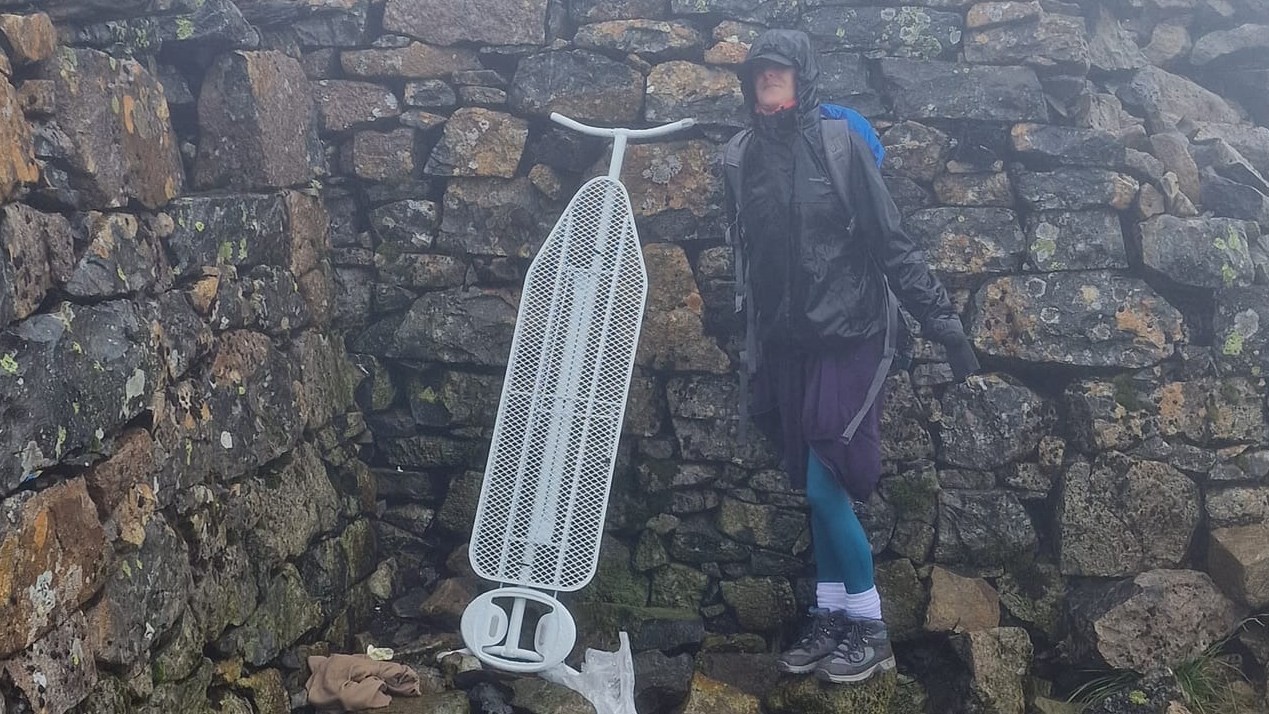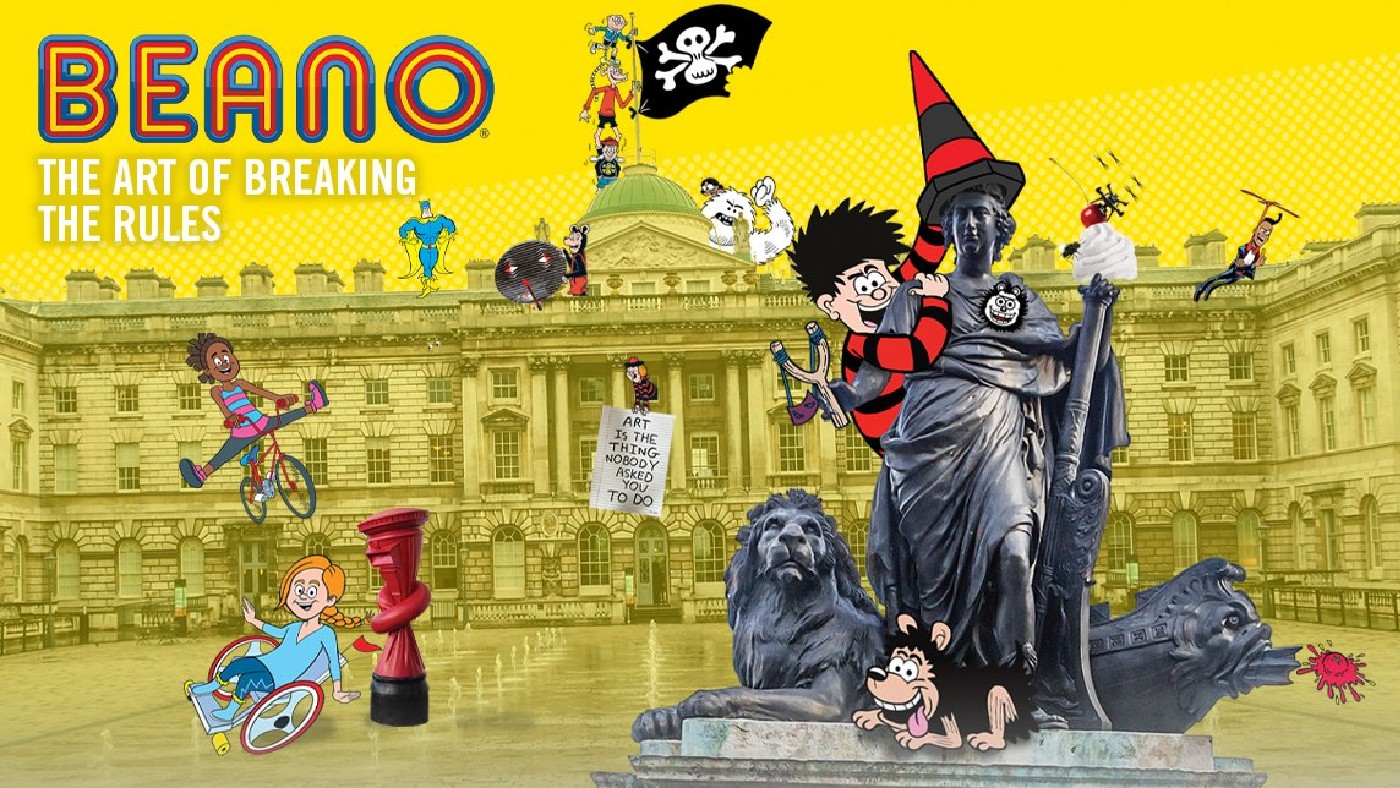‘Thousands of children in care are at risk due to Brexit’
Your digest of analysis and commentary from the British and international press

- 1. A new Windrush is in the making. Its victims are the most vulnerable of young people
- 2. Johnson must resist this very English unionism
- 3. David Cameron’s anti-cronyism rings hollow now
- 4. United in grief, the royal family - and the nation - can heal the fractures of the past year
- 5. Even with restrictions lifted, the prospects for the high street are grim
A free daily email with the biggest news stories of the day – and the best features from TheWeek.com
You are now subscribed
Your newsletter sign-up was successful
1. A new Windrush is in the making. Its victims are the most vulnerable of young people
Sonia Sodha in The Guardian
on a brewing scandal
“Three years on, the individual tales of Windrush injustice still have the power to catch my breath,” writes Sonia Sodha in The Guardian. But not only has the government declined to fix the “hostile environment” for migrants to the UK, but it is also now “putting thousands more children in care at risk of this fate as a consequence of Brexit”. The deadline is fast approaching for EU citizens living in the UK to apply for the right to remain. “Local authorities have to do this for children in care,” notes Sodha. “But the Children’s Society has established through Freedom of Information requests that, so far, fewer than 40% of the 3,700 or so eligible children in care and care leavers we know about have applications in,” she writes. “The government was warned again and again about the consequences of its policies for the Windrush generation, to no avail. Will they listen this time?”
The Week
Escape your echo chamber. Get the facts behind the news, plus analysis from multiple perspectives.

Sign up for The Week's Free Newsletters
From our morning news briefing to a weekly Good News Newsletter, get the best of The Week delivered directly to your inbox.
From our morning news briefing to a weekly Good News Newsletter, get the best of The Week delivered directly to your inbox.
2. Johnson must resist this very English unionism
Alex Massie in The Times
on ‘muscular’ politics
“Brexit set new constitutional fires blazing in Scotland and Northern Ireland while also introducing fresh tensions between London and Cardiff,” writes Alex Massie in The Times. “Many of these problems had a common origin: the sense that the voices of the smaller nations were ignored.” In England, however, there is a different narrative: “England’s rights must be respected and it is past time that the devolved administrations were put in their place.” This “muscular” form of “unionism” is “intensely suspicious of the devolved administrations”, writes Massie. “This is a very English form of 'unionism', largely alien to unionists in Scotland or Northern Ireland or even Wales. Few unionists elsewhere either recognise it or want any part of it.”
A free daily email with the biggest news stories of the day – and the best features from TheWeek.com
3. David Cameron’s anti-cronyism rings hollow now
James Kirkup in The Telegraph
on avoiding sunlight
“In 2009, when this newspaper started revealing details of MPs’ expenses claims, David Cameron was the first senior politician to realise how big the story was,” writes James Kirkup in The Telegraph. “He played the situation to his advantage, using questionable expenses claims to purge the Conservative Party of MPs not signed up to his agenda, and presenting himself as the man to clean up politics. ‘Sunlight is the best disinfectant’,” Cameron said before becoming prime minister. “But as a self-appointed champion of sunlight, one might expect him to face up to public scrutiny and explain his conduct. Instead, he spent weeks ducking hundreds of media inquiries about his actions as the scandal grew,” Kirkup adds. “Of course, the biggest question for Mr Cameron is: why? Why squander so much talent and experience in this way? He really didn’t need the money.”
4. United in grief, the royal family - and the nation - can heal the fractures of the past year
Mary Dejevsky in The Independent
on the end of the Elizabethan era
The death of the Duke of Edinburgh at the age of 99 may “produce one of those times when palace and people become closer”, writes Mary Dejevsky in The Independent. “Coming at the end of 12 months in which so many families have been bereaved, the death of the oldest and in some ways the most approachable and least divisive royal (bar the Queen) could have a unifying effect,” she writes. “There is a sense in which his departure just now seems, yes, sad, but somehow fitting.” But the death of the prince also leaves the Queen “very much alone” and “shifts the spotlight still more sharply on to the next generations”. It has been clear for some time that “Prince Charles and Prince William were already taking on more of the Queen’s duties but the country as a whole will now be even more aware that the days of the Elizabethan era are numbered and the generational transfer is at hand”.
5. Even with restrictions lifted, the prospects for the high street are grim
Len Shackleton on CapX
on the new normal
“Today’s reopening of non-essential retail is very welcome. But the damage that the pandemic has caused to Britain’s shopping malls and high streets is not going to be repaired soon, if ever,” writes Len Shackleton on CapX. The high street will be a “greatly reduced attractor”, with the disappearance of big “anchor” retailers like John Lewis and Marks & Spencer leaving “depressing gaps in many towns”. In any case, writes Shackleton, our shopping habits have “almost certainly changed for good”, with Brits already turning to internet shopping even before the pandemic. “For all but the most intrepid shopper, it will surely be far better to continue ordering stuff from Amazon while watching Netflix with a nice cup of tea, and without having to wear a mask and face glaring security guards everywhere.”
-
 ‘Restaurateurs have become millionaires’
‘Restaurateurs have become millionaires’Instant Opinion Opinion, comment and editorials of the day
-
 Earth is rapidly approaching a ‘hothouse’ trajectory of warming
Earth is rapidly approaching a ‘hothouse’ trajectory of warmingThe explainer It may become impossible to fix
-
 Health insurance: Premiums soar as ACA subsidies end
Health insurance: Premiums soar as ACA subsidies endFeature 1.4 million people have dropped coverage
-
 NHS tells Scots to walk like penguins
NHS tells Scots to walk like penguinsTall Tales Walk like penguins in the snow, says NHS
-
 Woman solves 'rude neighbour' mystery
Woman solves 'rude neighbour' mysteryTall Tales And other stories from the stranger side of life
-
 'Extreme ironing' blamed for Ben Nevis board
'Extreme ironing' blamed for Ben Nevis boardTall Tales And other stories from the stranger side of life
-
 Screaming Beatles fans embarrassed George Harrison’s mother
Screaming Beatles fans embarrassed George Harrison’s motherfeature And other stories from the stranger side of life
-
 First crocodile virgin birth recorded
First crocodile virgin birth recordedfeature And other stories from the stranger side of life
-
 Beano comics sent to Australia
Beano comics sent to Australiafeature And other stories from the stranger side of life
-
 Joggers told to wear helmets amid bird terror
Joggers told to wear helmets amid bird terrorfeature And other stories from the stranger side of life
-
 Otter accused of killing relocated Loch Lomond beavers
Otter accused of killing relocated Loch Lomond beaversSpeed Read The dead beaver kits were moved from Tayside to RSPB Scotland reserve last month